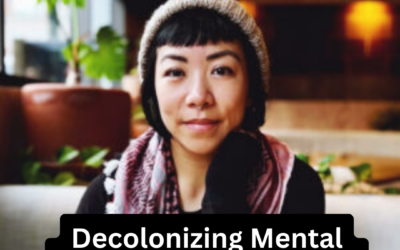Podcast: Play in new window | Download (Duration: 26:10 — 15.0MB)
Subscribe: Apple Podcasts | Spotify | Amazon Music
IN THIS EPISODE:
Organizing The Disorganized: Understanding The Elusive Attachment Category
Show Notes
Disorganized attachment states of mind happen to us all. We temporarily get lost in a jumble and it’s difficult to track what is happening… but for some this is a more serious concern that can reflect much of how we feel much of the time. By popular request, we begin to unravel the last attachment category and update current thinking that includes those who have unresolved trauma, loss or have had caregivers who were frightening.
Disorganized Attachment
In this episode, Sue Marriott, Patty Olwell and Dr. Ann Kelley discuss this oft-overlooked fourth category; disorganized attachment and how it affects our adult lives. We go over it’s development and move to our current thinking on what it includes. We’ll talk about how attachment is formed as a survival skill and how loss, trauma and frightening caregivers transport individuals to disorganized spaces. Towards the end you’ll learn how relationships can provide safety and security in neurobiological terms, and how you can affect change for yourself or a loved one.
Timeline
0:00 -1:53 Intro
1:53 – 3:49 Quick review of attachment & underlying organized dynamics (Secure & Insecure) Insecure attachment (Insecure Preoccupied & Insecure Avoidant)
3:49 – 4:18 Data on attachment and historical figures (John Bowlby, Mary Ainsworth, Mary Main)
4:18 – Attachment as biological imperative & cross cultural – everyone has an attachment system
4:59 Three distinct categories – The addition of the fourth distinct disorganized attachment category (The Strange Situation)
6:54 – The problem of disorganization in adults rather than children (update) – Applying data to real life individual people – Disorganization/attachment as a spectrum
7:59 – How can we begin to move towards the middle (secure) including the disorganized?
9:32 – Buckets instead of a category
10:19 – What does disorganized attachment look like in an adult? What does “unresolved” mean? Losing mentalization & context, disorganization in parents
11:59 – Frightening caregivers – Deborah Jacobvitz
12:51 – Moving unresolved into resolved space – Narrative coherence (resolved) Unresolved taking too much information forward so you can’t forget about the stress event or events bad (in the form of nightmares, intrusions, and pre-occupations)
15:03 Other side of unresolved – avoidance of incident/trauma
16:09 – Children with trauma don’t have narrative coherence – body remembers incident but it’s fragmented
17:09 = Clinicians that came in after Ainsworth Main and Bowlby – Patricia Crittenden (student of Ainsworth). Keeping the caregiver available.
20:09 – Finding an organized state balanced between thinking and feeling
21:00 – What to do in order to heal (developing trust is key to healing)
22:00 – Biology of attachment
23:00 – Free Online Course on Modern Adult Attachment coming soon, along with
others that will include Advanced Studies – join the waiting list for the free course at
www.therapistuncensored.eventbrite.com
25:47 – Outro
Therapist Uncensored Online Course – Reserve your spot now!
In addition if you enjoyed this, we will be providing much more from a synthesis of the latest and greatest ideas out there for intervention, prevention and clinical work for those of us that didn’t come by secure relating in the old-fashioned way, from parents.
For those that are having to work to earn it or who treat people with attachment insecurities, we have an online course coming up soon. Email us at info@www.therapistuncensored.com to reserve your slot and we will send you more details of the course as it unveils.
RESOURCES:
Additional resources for this episode:
- Patricia Crittendon and Andrea Landini: Assessing Adult Attachment A Dynamic-Maturational Approach to Discourse Analysis (2011) Book that updates the previous attachment literature specific to clinical populations.
- Brown and Elliott: Attachment Disturbances in Adults Treatment for Comprehenisve Repair (2016) New book that is a MUST HAVE for clinicians interested in attachment.
- Steele and Steele: Clinical Application of the Adult Attachment Interview Excellent edited book on using the AAI in various clinical settings – we use it to learn what is important clinically that the AAI is getting at re: best practices for treating adult attachment.
- John Bowlby: A Secure Base The father of attachment!
- Mary Main, Mary Ainsworth both primary researchers with Bowlby.
- Steele and Steele: Clinical Application of the Adult Attachment Interview Excellent edited book on using the AAI in various clinical settings – we use it to learn what is important clinically that the AAI is getting at re: best practices for treating adult attachment.
- Jacobvitz, D., Hazen, N., Zaccagnino, M., Messina, S., & Beverung, L. (2011). Frightening maternal behavior, infant disorganization, and risks for psychopathology. In D. Ciccetti & G. Roisman (eds.), The Minnesota Symposium
- on Child Psychology: The origins and organization of adaptation and maladaptation, 36.New York: Wiley. Pp. 283-322
- Video of Strange Situation to familiarize yourself with Mary Ainsworth and later Mary Main’s phenomenal work.














